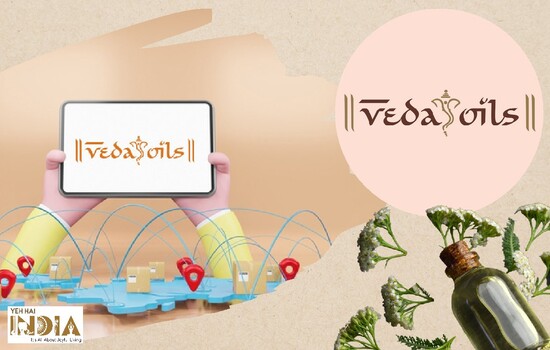Not able to decide whether to join a startup or not? This article might help you in making an informed decision.
Career choices are difficult to make and with startup culture at its peak in India, we all are sometimes at that juncture where we are confused. So here we are sharing with you the experience of one of the many college graduates who make such choices. This would help you evaluate the Pros and Cons of joining a startup in India.
Ryka Solanki(name changed) is a recent graduate from one of the top colleges in the country. She has a couple of job offers in her hand – a feat not everyone achieves just out of college, especially in this weak economy. But in hand is not just an offer – but a decision to be made. On one hand is an entry-level job – though very well paying, with the most well-known brand in the field of the study. On the other hand is a job offer from a small startup which has just got its funding and is expanding.
Finally, she took the startup offer. Her roommate in the big city would notice how she used to come back late to the PG. One day, she decided to have a conversation with Ryka regarding the job culture and the difference they both were experiencing. It was only then that they both realized how remarkably different things were on what seemed like similar work, considering how corporate functions.
So, what were some things Ryka realized were the pros of working with a startup? Let’s find out.
1.The “Hustle” Environment
Hustle is an important keyboard in the millennial population of today. But what is “hustling” in a well-established corporate firm may not be the same hustle experienced in a startup. You have to be on your toes every day, each hour, each moment while working with it. There might be days when you have to work more on the “unplanned tasks” than the planned ones. You never know when you will receive a mail in the midst of your daily schedule work, where you might have to review some work of your subordinate, organize or attend a meeting, or take a call with the client. Professional life is always uncertain, and you are almost never expected to leave on the time your HR might have communicated to you as the “minimum working hour”. Focus on the word “minimum”, because the maximum may move upto 12-14 hours of day work!
2. The “Decision-Maker”
So you had a different department to train your operators for the job to be done? In a startup, you are almost NEVER expected to put responsibility or make decisions about individuals who are dependent on you in some way or the other. While in a company, you are expected to follow a procedure and a proper channel to come to the end decision, startup gives you the liberty of taking decisions at the instant moment, for which you might be solely responsible. This leaves you in a sharp horn of dilemmas during your initial days. But eventually, you get used to the uncertainties.
3. The “Learning Curve”
A well-established corporate, there might be different individuals to take care of the training purposes, salary and finances department, Desktop-Publishing Department, Quality Purpose Department, Accounts Department, a Human Resource Development and Training Department, Reviewing Department – but in a startup, there is ONE individual who takes care of all of this in the most pro manner – a behaviour which you only expect your mother to show while she takes care of the family. All this for one salary which, in most cases, would be lesser than what you’d get in the market. But the bigger roles give you a sense of belongingness and power, which helps you grow in your professional space.
4. The liberty to “INNOVATE”
Startups have the urge to grow fast – faster than the competitors first, then faster than the unicorn before becoming a unicorn, and finally the dream to enter the elite club of startup-turned establishments. So, you as an employee, are always expected to bring in reforms with decisions which have an almost immediate impact on the company. This gives you the license to make some smart, brilliant decisions with no supervision, or people to point out flaws. While this might seem like a problem, it’s always with failures that we learn. Use the dynamic energy, use the fresh design, and share the ups and down in the journey of learning and innovation is the mantra of the “going to be successful” startups.
5. The “FAMILY” Experience
In a startup, almost everyone knows everyone else. They work like horses, and party like madmen. This acquaintance with each member of the company gives the vibe of a big family. It always feels like home away from home, and the nostalgia associated with the college days come back to reality. This helps in growing both as a team, with smaller achieved goals getting more appreciation than you’d ever get in a well-established 2000 employee big firm. Adding to this, the youthful environment, the constant motivation, and the healthy competition to work better than the equals always makes it feel like we have siblings around.
However, we feel that it is not just the PROS that needs to be counted while working with a startup.
Recommended Story – Opportunities for Startups in Rural India
There are obviously some cons associated with it, and before taking a decision to join one, it is important that you have a look at the CONS:
1.Lack of Social Life
When we say that it is a big family, it doesn’t really mean you get a social life. The lack of one is almost always the complaint of employees in a startup. For the ones who haven’t travelled 1500 km to a different city and live in a PG, this might work as something they’d like, but for the ones who have a real family to spend time with – it almost gets hectic to balance professional and personal life. The long working hours with the travelling time to go back to your home always takes a toll on the physical and mental health, and it becomes an exhausting experience after a point of time.
2. Lack of salary and unseen pay-cuts
Amidst the Corona lockdown, while well established firms are giving it to their employees to make sure they don’t feel the heat of the falling economy, many startups have announced salary cuts from the lowest to the top of the ladder. This along with the initial low salary offer might not give financial satisfaction that one expects from a professional pursuance.
3. Constant pressure to perform
While you get an exposure of the highest order working with a startup, it is expected every time from you that you’d give the same or even better results than the last time. While some may take it as a challenge, there are a few who are not used to such an environment and they might start losing interest at some point of time. The high expectations may even lead to personal distress. Infact, depression among startup employees has emerged as an epidemic which needs certain concrete measures to tackle.
Conclusion
Startups are jet skies – super short turn radius, agile, quick response to action, really fast and fun for risk takers, but not many people can fit on one, and if you crash – that sucker’s gonna do some damage.
Aircraft carrier companies take major, planned maneuvers to turn involving many people, so you’re kind of destined to stay the course (at least for the immediate future), and it’s not really a joyride, but you’ve got the added brainpower of many more, you get fun tools and toys, you’ve got real weaponry to deploy, and if you crash – well, you worry more about the other guy.
But as a pilot of the aircraft carrier (here, a metaphor to startup), it is expected that you maintain calm and composure, belief in your goals, and most importantly – the quality to adapt in unforeseen circumstances. Ryka has now become a pro working with a startup. While sipping the coffee late night planning her tasks for the next day, she has a thought – What if she had made the alternate choice back then?
Also Read – Top Sites to find Internship Jobs in India









